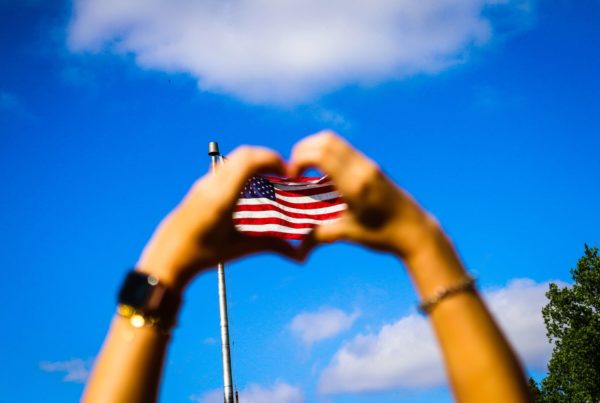
Table of Contents
Chapter 1
Overview
Planning to study in the USA? Looking for the interview questions for the F1 Visa interview? If yes, you have come to the right page.
Getting an F1 visa is a must for every international student who wants to live and study in the US. Many students feel it is a multi-stage journey, however, it is all very straightforward.
In this post you will learn all about the F1 Visa and different types of interview questions. Let’s get started!
What is an F1 Visa?
The F1 Visa is a non-immigrant student visa required by overseas students who intend to study in the United States. Nevertheless, if you enter the United States on this visa, you must finish the entire course period. Only US embassies and consulates abroad have the power to issue F-1 visas. F-1 visas cannot be issued by any other regulatory body or agency. Furthermore, extensions of stay or changes in the candidate’s status can be obtained within the United States through official agencies. In addition, the spouse and/or children of F-1 Visa applicants must obtain the dependent’s F-2 Visa. F-2 Visa holders are not allowed to work in any capacity, but their children are permitted to attend public schools.
Since the visa application process is time-consuming, you should begin applying early. You should register for an F-1 visa as soon as you get your university’s admit or acceptance letter and the I-20 application.
F1 Visa Acceptance Rate :
Although many students wish to study in the United States, the difficult F1 visa acceptance rate typically discourages them. This is due to the extremely low possibilities of obtaining a visa here.
However, in recent years, the visa acceptance rate has increased, allowing more students to fulfil their abroad studies goals. Let’s take a look at the numbers:
2015 Acceptance Rate
In 2015, 987,831 visa applications were approved. This covers J1 and M1 visa applications as well. This appears to be a large number. However, given that 259,722 additional applications were ultimately refused, completing the F1 visa application procedure is difficult.
2016 Acceptance Rate
In 2016, 644,204 visas were given to students intending to study in the United States. In 2017, there was a 17% decrease in the approval rate for prospective students. The total number of visas issued in the fiscal year ending September 2017 was 393,573. This represents a 39% decrease from the figures we saw in fiscal year 2016.
Acceptance Rate in Recent Years
Over the last 4 to 5 years, the US government has overly scrutinised visa applicants. This statistical shift, however, is determined by the schools and their classifications. Although some high-end schools and universities receive superior results for visa applications, others lag behind.
F-1 Visa Document requirements :
Below are the list of documents you will require for the F1 Visa:
Personal Information
- Passport
- MRV Fee Receipt
- Visa Interview Appointment Letter
- DS 160 Confirmation Slip
- SEVIS Fee Receipt
- Passport Size Photograph
Educational Documents
- Academic Transcripts
- GRE/GMAT/SAT scorecard
- IELTS/TOEFL/PTE scorecard
- Bachelor’s Degree or Provisional Degree Certificate or Course Completion Certificate or Marksheet
Work-related Documents (if applicable)
- Joining Letter
- Salary Slips (last six months)
- Relieving Letter
Financial Documents
- Loan Approval Letter
- Saving Bank Account Statement
- Fixed Deposit Certificates
- Tax Returns for the past 3 years
- Property Documents
Dos and Don'ts for F1 Visa Interview :
Like any other interview, there are things you should do and should not. We have jotted down some dos and don’ts in the section below:
Dos
Smile:
A smile can bring confidence. There is no need to act serious. Going to the United States for studies was your dream, and you’re getting closer to realising it. You can smile about it now.
Speak in English:
One of the critical elements for studying in the United States is the ability to communicate in English. You must have good written and speaking proficiency.
Make Eye Contact:
Making no eye contact is considered an indication of dishonesty. Practice at home, and remember to look at the assessor when answering.
Carry Your Documents:
Always ensure that the folder you carry is complete with all relevant documents and that it is correctly categorised so that if you are asked to submit a document, you have it available.
Dont’s :
Don’t Be Nervous:
There is no cause for you to be concerned about your visit to the United States. This is something that thousands of students from all over the world do. While some anxiousness is normal, excessive sweating or hyperventilation is not. If you have a tendency to fidget, try these breathing practices before your interview to settle your nerves.
Don’t Force an Accent:
The Visa Officer can recognize Indian accents, so don’t try to sound American. Try to be clear and crisp while answering the questions.
Don’t Stare: Looking someone in the eyes and looking at them without blinking are two completely different things. Constant staring can make the interviewer feel uneasy; don’t forget to blink while speaking.
Don’t Offer Your Documents If Not Asked:
The visa officer is unlikely to request any documentation. Do not try to show it to them if they didn’t ask you for it..
Chapter 2
The F1 Student Visa Interview Questions :
During the interview, visa officers attempt to determine whether or not you are travelling to the USA to study. Many F1 candidates will fake going to the United States to study in order to get entry into the nation. Inquiries concerning college and university, banks and finances, family and loved ones, work and career prospects, and other random questions that may appear irrelevant at the time of the interview are all crucial components of the interview.
Questions on College & University :
- What is the name of the institution or university you want to attend, and why did you choose this particular university or college?
- How many colleges did you apply to, and why did you do so?
- What are the names of the colleges to which you’ve applied?
- Were you accepted by all of them?
- What are the names of the colleges to which you have been accepted?
- What is the name and location of the college where you got your undergraduate or graduate degree?
- Do you know what your undergraduate GPA or percentage is?
- Please tell us more about your college: Where is it, what degree did you earn, or what degree do you intend to earn?
- Tell us the names of the professors at the US university with whom you are in contact.
- What year did you complete your Bachelor’s degree and which college did you attend?
Questions on Bank & Finance :
- Who is funding your education?
- How do they plan to pay for it? What is their professional experience?
- Tell us more about your father’s and mother’s job and income, as well as how long they’ve been with the company.
- What is the monthly income of the individual who will fund your studies?
- Aside from that, could you tell us more about your sponsor’s yearly income?
- How much does a year at your college cost?
- Is your sponsor covering the entire cost, or did you take out a loan?
- Please provide us with your most recent bank statement.
- How will you pay your studies and living expenses if you plan to stay for 2 – 3 years?
- We can detect significant amounts that were only recently deposited on your bank statement. Please elaborate!
Questions on Relatives & Family Members :
- Have you got any brothers and sisters?
- Are any of them currently residing in the US, or do you have any other family who do?
- Is your mother and father employed? What are they doing for a living if they don’t?
- Why does your brother or sister live in America? What exactly do they do here, do they work or study?
- Would you like to work in the United States as well?
- Did your parents/brother/sister finish school? Which ones are they?
- Which country and state do your parents reside in?
- Will your parents be able to pay for your education in the US after paying for your siblings’ education?
- Do you have any relatives who are studying at the same college you intend to attend?
- Do you have a partner?
Questions on Work & Job :
- If you work, why do you intend to leave your current employment to study abroad?
- Please bring your CV or any other documentation demonstrating your professional experience.
- What is your current salary?
- Do you have any savings?
- Do you intend to work in the United States after you finish your studies?
- Do you intend to work while studying?
General Questions :
- What are your motivations for studying in the United States, and why did you not choose Germany or any other country?
- Tell me some positive things about the US, and why you enjoy it as a country.
- What are your plans after finishing your education and returning to your home country?
- Why do you wish to pursue a Master’s or Ph.D.?
- Could you please explain why your GRE/TOEFL scores are so low?
- I believe you wish to immigrate to the United States; do you want to return home?
- Tell us what you know about education and the American educational system.
- Why did you only apply for the summer term and not the fall term?
F1 Visa Interview Tips :
Now that you’ve learned everything there is to know about the F1 Visa interview procedure and the documentation you’ll need, all that remains is to complete the interview. This is the most nerve-racking part for many people. Prospective students who have progressed this far in the immigration procedure are concerned that they will make a mistake.
It’s normal to be nervous, but there’s no need to be terrified! If you follow the following tips, you should be well on your way to acquiring your visa soon:
Make a Good First Impression
Making a good first impression when addressing your interviewer might set the tone for the entire interview. Dress smartly, give a firm handshake, and appear confident to get the interview started on the right foot.
Communicate Clearly
Clear communication, like in any other situation, helps you get your argument through far more effectively. Avoid using filler words like “like” or “uh,” and take your time answering a question.
Before your actual interview, conduct practice interviews with a friend or relative to strengthen your communication skills. Request that they keep track of how frequently you use filler words and provide suggestions on how you can communicate more effectively while answering inquiries.
Speak English
Although all F1 visa interviews are performed in English, don’t panic if English is not your first language. You don’t have to be a native speaker, but you should be able to comprehend all of the questions without having to translate them.
Remember, it is acceptable to take your time answering the questions. You will do okay without excellent English pronunciation or fluency as long as the interviewer realises that your English level is sufficient for your academic degree and living in the United States.
Be Prepared
Even though every interview is unique, as previously indicated, the interviewer is looking for two things: your educational plans and financial assistance. As a result, you should be prepared to answer questions about these two areas during your student visa interview, like ‘how do you intend to fund your living expenses?’ or ‘what do you intend to do after your educational degree ends?’
Know Your Program
The interviewer will inquire about the school and programme you intend to attend. Since the degree is the reason you are seeking for the visa, you should be well versed about the course and how it will aid you in your future job or educational aspirations.
What you should know is how long the course will continue, what you will learn, what you intend to do with the skills you get from the course, and why you choose that specific program to attend. Ultimately, consider why you choose that program instead of one in your native country.
Prove Your Intent to Return Home
Since the F1 visa is a non-immigrant visa, you must intend to return to your native country when the school program concludes. The interviewer will ask you some questions about when you expect to return home and what you want to do following your program to ensure that this is your plan.
When addressing the student visa interview questions, make it apparent that you do not intend to stay in the United States after your course expires. If you do not, you will be denied the F1 visa.
Keep Your Answers Precise and Concise
Most visa interviews are incredibly brief, frequently lasting less than 5 minutes. As a result, you should keep your responses brief so that you have enough time to answer all of the questions. However, practising the interview ahead of time can help. When you practise answering typical interview questions ahead of time, you will reduce the time it takes you to come up with an answer and boost the quality of your answer.
Stay Positive
Many candidates will overburden during the interview because there is so much at stake. This can make them appear suspicious and irritated.
You should aim to have a pleasant attitude throughout the interview in order to appear polite, peaceful, and relaxed. Maintain a good attitude even if you believe you made a mistake!
Be Honest
Your visa interviewer has most likely conducted hundreds of interviews and will notice if you are lying. You must never lie during an interview or falsify any documents you bring with you. This will only raise your chances of being denied.
Reasons for F1 Visa Rejection :
We have listed the major reasons why an F1 Visa can get rejected:
- If there is a lack of financial evidence to back up the student’s education.
- If the visa officer determines that the applicant is a potential immigrant, the visa is denied immediately.
- If an applicant is unable to justify his strong roots in his homeland.
- Inappropriate or false documentation.
- If a candidate is unable to persuade/justify his or her intentions to the visa officer, the visa will be denied. For example, if the candidate fails to explain why he or she chose a particular subject and college/university. Ensure that you are prepared to explain why you chose the specific course and the college/university where you received admission.
- Sometimes students who have been accepted to prestigious universities are also denied visas.
Conclusion :
It is critical to remember that, while the Visa Interview is an essential component of your US Student Visa Application, it is not the lengthiest. In fact, the average US Visa Interview lasts 3 to 4 minutes and sometimes even less than that. Furthermore, contrary to popular opinion, the Visa Officer will not review all of your documents. In fact, they only request paperwork on the rarest of circumstances. Generally, Visa Officers do not request any documentation. Though it is usually suggested that you take them with you, it is crucial to remember that you must not give your documents unless asked.
We hope you have understood all the above-mentioned points related to F1 Visa. Stay tuned for more posts on study abroad programs.











This is above expectations and very helpful. Before reading this article I have number of a doubts, But now all confusion is clear and I am sure I will clear all the rounds.
Thanks, galvanizetestprep for this great article.